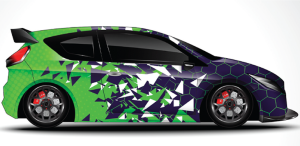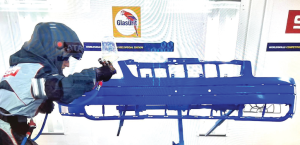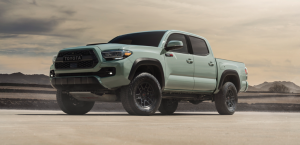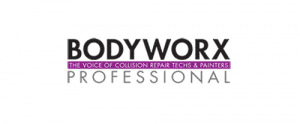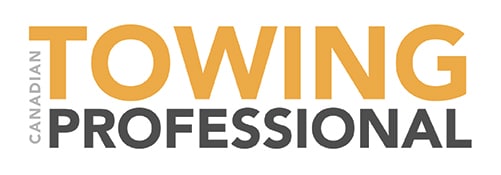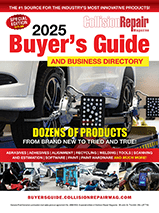FEAR NOT, THE FUTURE IS EXCITING
BY DARRYL SIMMONS
If you didn’t understand artificial intelligence two months ago, you surely have a better understanding now. AI language models like ChatGPT have made sure of that. The adoption of artificial intelligence has been rapid, particularly in the last two years. If you need any proof of that, look to how ChatGPT has gripped the world in the last two months. People are using it for everything from simple grocery lists to writing thesis papers (albeit ones with poor syntax and generally basic argumentative points).
There’s always been a looming fear around the adoption of artificial intelligence. The robots are taking our jobs! Collision repair has been known to be a generally recession- proof business. But are we AI-proof?
AI is already revolutionizing the trades by taking over monotonous manual tasks that were once done by humans. One day it’s a Roomba replacing the guy who’s always sweeping; the next, it’s an automatic welder pumping out perfect welds in half the time it takes a highly skilled tech. Certain OEMs have mechanisms that can paint entire cars—even perform precise pinstriping. Top-notch, automaker-approved welders now come with an auto-weld setting.
Artificial intelligence also has the power to target auto repair jobs at the root—in assembly, that is, detecting flaws that previously went undetected until reported on the consumer front and marked for recall, and ultimately repair or replacement. None of this should scare you, though. There are countless ways that AI can open doors for those on the production floor. Increased efficiency; heightened productivity and so much more.
Virtual reality headsets are one breakthrough way that AI is transforming the trade. Mercedes- Benz revealed in 2019 that its service techs could use the Microsoft HoloLens 2 to guide them in repair procedures. Colleges across Canada use Oculus headsets to train students on welding or spraying, giving them a feel for muscle memory and a basic understanding of the process. At recent Skills Canada regional competitions, providers brought the tech out for high schoolers to try— how many of those students would have been offered the chance to try a spray gun otherwise? I can’t remember the last time I saw a spray booth handing SATA guns out to kids at an industry event.
AI will not replace all jobs in the collision repair industry, and no one has ever said that it will. Real, living collision repair techs, painters and automotive professionals possess skills that cannot be replicated by machines—problem solving, adaptability, creativity…to name a few. These technologies will not replace jobs, but they will change the nature of our industry. And it’s our duty to be prepared.




